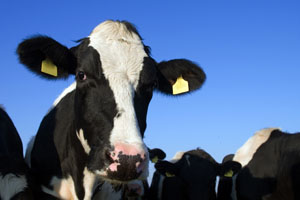Healthy and environmentally sustainable diets
Published on 7 July 2011 in Food, health and wellbeing
The Livewell project has demonstrated for the first time that it is possible to create a realistic and affordable diet that meets dietary requirements for health and a 25% reduction in greenhouse gas emissions (GHGE) by limiting the quantities of food high in greenhouse gas emissions (GHGE), such as meat and dairy products. Future work will consider other factors such as the impact of food choices on land and water use, and other social, ethical and economic issues.

Key Challenges
The average diet in the UK is failing to meet dietary recommendations for health and is also contributing significantly to climate change, with the food supply chain contributing approximately 18-20% of total greenhouse gas emissions (GHGE) in the UK. It is being increasingly recognised that dietary recommendations need to be integrated to provide guidelines for healthy and environmentally sustainability diets.
Key Benefits
The Livewell project was carried out at the Rowett Institute of Nutrition and Health, funded by the WWF-UK and the Scottish Government. The aim of the project was to use modelling techniques to test whether it was possible to construct realistic and acceptable diets for the UK population that would meet dietary requirements for health and achieve a significant reduction in greenhouse gas emissions.
The diet was modelled on the food and nutrient requirements of an adult woman. It was based on a woman’s diet as women have a higher iron requirement than men, so it was important to ensure there was sufficient iron in the diet despite lower energy requirement of a woman.
The Livewell project found it was possible to create a realistic and affordable diet that met dietary requirements and a 25% reduction in greenhouse gas emissions by limiting the quantities of, but not excluding, food high in greenhouse gas emission, such as meat and dairy products.
It was possible to create a realistic and affordable diet that met dietary requirements and a 25% reduced GHGE by limiting the quantities of, but not excluding, food high in greenhouse gas emission, such as meat and dairy products. Compared to the current UK diet, a reduction in meat and meat products and high fat and/or sweet foods combined with an increase in starchy food and fruit and vegetables is needed to achieve these targets. The study illustrated that many of the principles of eating a healthy diet are compatible with reducing GHGE and by choosing the right balance and quantities of food does not require specific food groups to be eliminated from the diet.
The Livewell project was a scoping study and provided a starting point for taking forward this area of work to explore in more detail the relationships between dietary requirements for health and the impact our food choices have on environmental sustainability. In terms of a truly sustainable diet other factors need to be considered, such as the impact of food choices on land and water use, and other social, ethical and economic issues. In addition, future work will explore how to overcome some of the barriers to changing the dietary intakes of the UK population perceived by consumers and producers.


Comments or Questions
Related Websites
Our Partners
WWF-UK
Find Out More
For more information contact Dr Jennie Macdiarmid, j.macdiarmid@abdn.ac.ukAuthor
Dr Jennie Macdiarmid j.macdiarmid@abdn.ac.uk







